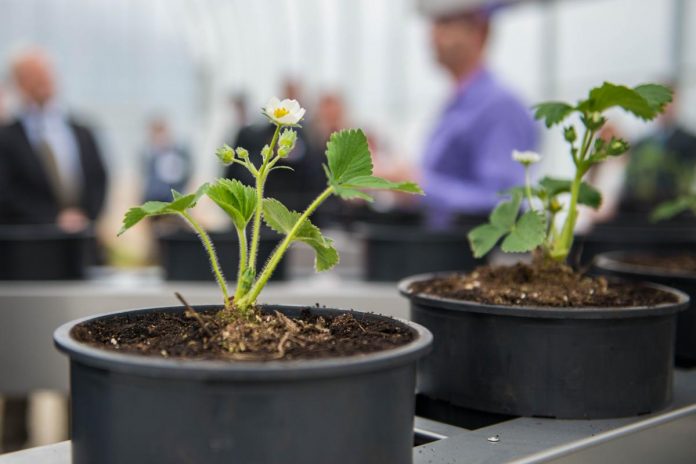The Agriculture Excellence Centre (ACE) at UFV joined a network of researchers and educators looking to improve agricultural communication, education, and research across British Columbia.
The network is made up of seven post-secondary institutions, including Simon Fraser University and University of British Columbia. Their goal is to work on collaboration, open communication between institutions and the industry, and improve agricultural educational options for students.
“We all have our strengths, and they all overlap,” said Garry Fehr, director of the UFV Agriculture Centre of Excellence. “UBC has a lot of applied biology, and people who work in climate change. So, they’ve perhaps got a different focus than say, Kwantlen University does, who has a lot of focus on small lot agriculture and urban agriculture.”
The communication network allows professors to connect students to businesses looking to hire interns or co-op students, and to researchers within the university looking for student assistants.
Fehr believes that going out into the community and utilizing skills learned in the classroom is an important part of the agricultural educational process.
“You get to put it all together,” said Fehr.
Nine students were hired during the last winter semester to work in the Surrey BioPods, and on various projects. One student worked with remote sensing and geographic information systems (GIS) technology to map out small parcels of unused farmland around the Fraser Valley. Other students conducted a case study on possible high value crops that could be grown on the small pieces of land.
For researchers at UFV, valuable connections are being made between the network and the agricultural industry.
“Too often, if you’re in academia, you don’t really have time to be out talking to industry about what’s going on,” said Fehr.
By opening the communication channels, Fehr hopes that researchers will be able to look more closely at specific problems limiting economic success in B.C., and applying their skills in correcting them.
UFV’s major contribution to the research network so far is through the construction of the Surrey BioPods, at the John Volken Academy in Surry. The partnership allowed for the funding of the 15 acres of dedicated research space, consisting of two greenhouses connected by a header house.
“You can test the new idea fairly quickly and easily in the small space without too much of a cost and without worrying about the loss of production,” said Fehr.
SFU recently conducted research on wasabi production at the greenhouse. The product is difficult to grow, often seeing extensive problems with mould and fungi in traditional greenhouse farming methods.
“Most wasabi that you get in sushi restaurants around North America isn’t wasabi, it’s horseradish dyed green,” said Fehr. “If we can start growing it here, it’ll be a high value crop.”
Other research includes working with strawberry production in a grow tower. The 12-armed vertical growing system, developed by Affinor Growers, could increase productivity by over 20 times the traditional ground growth methods.
One of the participating engineers believes she has figured out how to reduce the energy cost of growing in a greenhouse. The method will be tested over the winter, and will likely be reported on in the spring.
Discussion has also been started for who will conduct research in the pods next spring. Kwantlen University plans to begin a project, as well as a private engineer who plans on working with aeroponics, trying to grow plants outside of water and soil. Aeroponics is a different way of approaching growing, where nutrients and moisture are sprayed directly onto the roots. This could help reduce the amount of nutrients used.
In the future, Fehr sees the network project introducing a more integrated postsecondary education experience, and building a better connection between researchers and industry. He sees the network continuing to look directly at issues that harm food security, and affect the economic success of B.C. agriculture.


